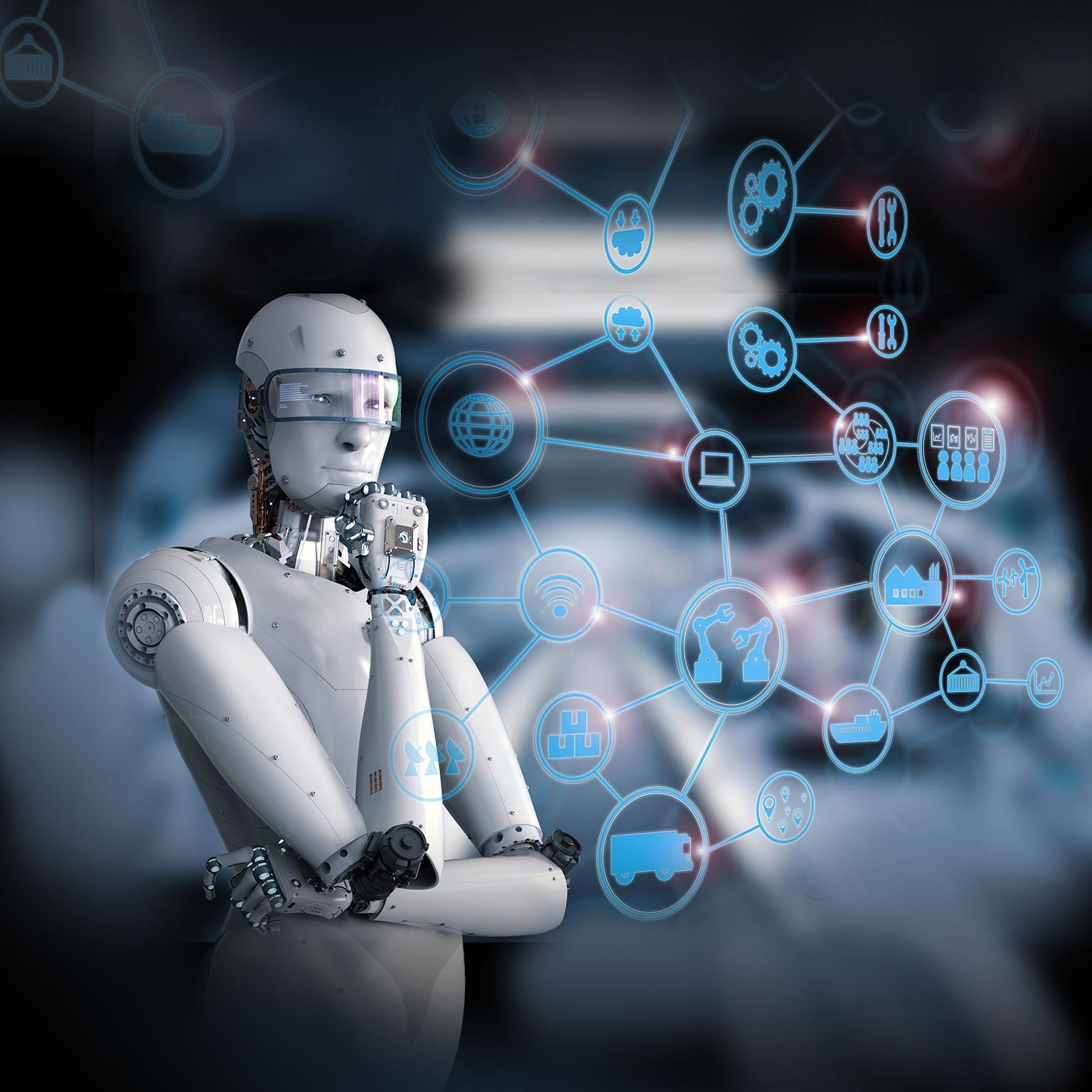“Artificial Intelligence Frontiers: Impact Across Industries”

Introduction
“Artificial Intelligence Frontiers: Impact Across Industries” delves into the profound influence of artificial intelligence (AI) across various sectors. This article explores how AI technologies are reshaping industries, driving innovation, and revolutionizing the way businesses operate in the digital age.
Revolutionizing Healthcare
AI-Powered Diagnostics and Treatment
Discover how artificial intelligence is revolutionizing healthcare with advanced diagnostics, personalized treatment plans, and predictive analytics. Explore the role of AI in disease detection, drug discovery, medical imaging analysis, and remote patient monitoring, enhancing healthcare delivery and patient outcomes.
Transforming Finance
AI-Powered Financial Services
Explore the transformation of the finance industry through artificial intelligence, from algorithmic trading and risk management to personalized banking and fraud detection. Learn how AI technologies analyze vast amounts of data, optimize investment strategies, and improve customer experiences in banking and insurance sectors.
Optimizing Manufacturing
AI-Driven Automation and Predictive Maintenance
Delve into the role of artificial intelligence in optimizing manufacturing processes, enhancing productivity, and reducing downtime. Discover how AI-driven automation, predictive maintenance, and quality control systems streamline operations, minimize costs, and enable agile responses to market demands in the manufacturing sector.
Enhancing Customer Experiences
Personalized Services and Intelligent Assistants
Explore how artificial intelligence enhances customer experiences across industries through personalized services and intelligent assistants. From chatbots and virtual assistants to recommendation engines and sentiment analysis, AI technologies anticipate customer needs, streamline interactions, and drive customer satisfaction and loyalty.
Revolutionizing Transportation
Autonomous Vehicles and Traffic Management
Discover the revolution in transportation fueled by artificial intelligence, from autonomous vehicles and ride-sharing algorithms to smart traffic management systems. Explore how AI technologies optimize transportation networks, improve safety, and reduce congestion, paving the way for sustainable and efficient mobility solutions.
Empowering Education
AI-Powered Learning and Personalized Education
Explore the impact of artificial intelligence on education, from adaptive learning platforms to intelligent tutoring systems. Discover how AI technologies personalize learning experiences, assess student progress, and provide real-time feedback, empowering educators and learners with tailored educational solutions.
Innovating Agriculture
Precision Farming and Crop Monitoring
Delve into the role of artificial intelligence in agriculture, driving innovation in precision farming, crop monitoring, and predictive analytics. Explore how AI-powered drones, sensors, and predictive models optimize crop yields, conserve resources, and promote sustainable agricultural practices.
Advancing Energy Efficiency
Smart Grids and Energy Management
Explore how artificial intelligence advances energy efficiency through smart grids, predictive maintenance, and demand-side management. Discover how AI technologies optimize energy distribution, reduce wastage, and enhance renewable energy integration, driving sustainability and resilience in the energy sector.
Improving Public Safety
Predictive Policing and Emergency Response
Discover how artificial intelligence improves public safety through predictive policing, threat detection, and emergency response systems. Explore how AI technologies analyze crime data, identify patterns, and allocate resources effectively, enhancing law enforcement capabilities and community safety.
Shaping Entertainment and Media
Content Curation and Personalized Experiences
Explore the impact of artificial intelligence on entertainment and media, from content curation algorithms to personalized recommendations. Discover how AI technologies analyze user preferences, behaviors, and trends to deliver tailored content, enhance engagement, and drive innovation in the entertainment industry.
FAQs (Frequently Asked Questions)
- How does artificial intelligence benefit industries?
Artificial intelligence benefits industries by automating tasks, optimizing processes, improving decision-making, and enabling personalized experiences. AI technologies enhance efficiency, productivity, and innovation across various sectors, driving economic growth and competitiveness. - What are some challenges associated with AI adoption?
Challenges associated with AI adoption include data privacy concerns, ethical considerations, regulatory compliance, workforce displacement, and algorithmic bias. Addressing these challenges requires collaboration between stakeholders, transparency in AI development, and proactive measures to mitigate risks. - How can businesses leverage artificial intelligence?
Businesses can leverage artificial intelligence by integrating AI technologies into their operations, leveraging data analytics, machine learning, and automation to optimize processes, improve decision-making, and enhance customer experiences. AI adoption requires strategic planning, investment in talent, and alignment with organizational goals. - What are the future prospects of artificial intelligence?
The future of artificial intelligence holds promise for continued innovation, advancement, and integration across industries. Emerging AI technologies such as reinforcement learning, natural language processing, and robotics are poised to drive transformative changes, unlocking new opportunities for business growth and societal impact. - How does artificial intelligence impact job roles and employment?
Artificial intelligence impacts job roles and employment by automating routine tasks, augmenting human capabilities, and creating new opportunities for skilled workers. While some job roles may be displaced by automation, AI also creates demand for roles in data science, AI development, and human-machine collaboration. - What ethical considerations arise in artificial intelligence development?
Ethical considerations in artificial intelligence development encompass issues such as privacy, fairness, accountability, transparency, and bias. Ensuring ethical AI requires adherence to ethical principles, responsible data usage, and inclusive decision-making processes that prioritize human values and societal well-being.
Conclusion
“Artificial Intelligence Frontiers: Impact Across Industries” showcases the transformative power of artificial intelligence in reshaping industries, driving innovation, and improving quality of life. As AI technologies continue to advance, businesses, policymakers, and society must navigate opportunities and challenges to harness AI’s potential for the greater good.